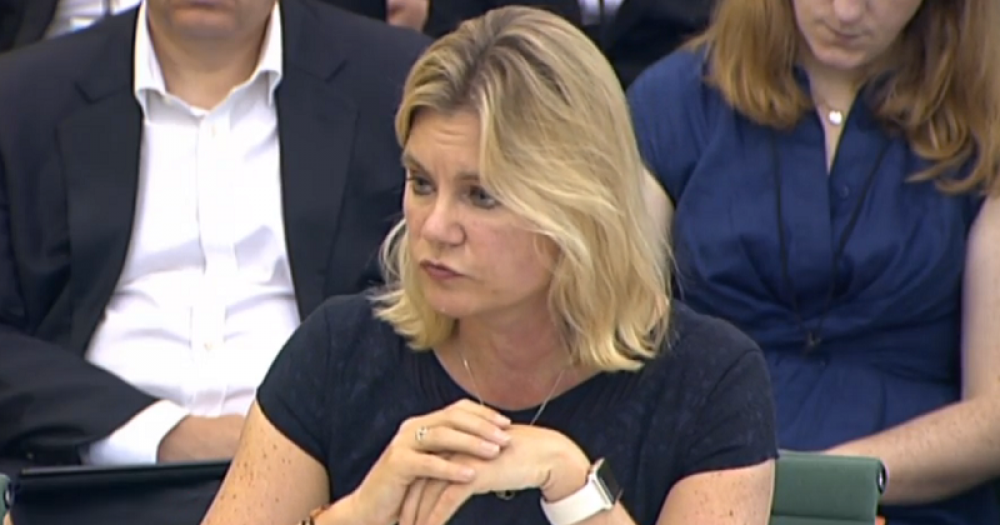The first ever procurement process for adult education budget contracts has been given the ministerial green light and is expected to begin within days.
FE Week understands the plan has been given the go-ahead by the secretary of state for education, Justine Greening (pictured).
The Skills Funding Agency first wrote to training providers in October and told them that their current AEB contracts would come to an end this July, rather than having them automatically renewed as before.
It said that changes to contracting regulations, which came into force in February last year, meant that the SFA could no longer automatically renew contracts when they ended and instead would have to “procure future training provision”.
The exercise had been expected to take place this month, but the government told FE Week on January 11 that there was currently no timetable in place.
The Department for Education had no official update as we went to press, but FE Week sources confirmed that the Skills Funding Agency wants the tender put out as soon as possible, and will start looking as early as next week.
Around 500 training providers will now battle for a share of the AEB, which totals around £1.5 billion.
Around 500 training providers will now battle for a share of the AEB, which totals around £1.5 billion
Only around £250 million of the budget is up for grabs however, as colleges, local authorities and universities – which contract with the SFA through a grant funding agreement – are not affected by the changes and will not have to tender.
Since hearing about the procurement process in October, Mark Dawe (pictured), chief executive of the Association of Employment and Learning Providers, has lobbied for all providers – including colleges – to have to compete to deliver AEB provision.
At the time he said that, without a tender, the process seemed “incredibly biased against large independent providers”.
After hearing that the government would continue only to tender for private providers, Mr Dawe told FE Week: “Not going out to tender for the whole £1.5 billion is another of example of the government using the adult education budget to prop up some colleges.
“It is far better to tender the whole budget to get value for money at the highest quality, regardless of provider type.”
As previously reported by FE Week, the new procurement procedure resulted from changes to European Union law.
They were first revealed in an SFA document entitled ‘Adult Education Budget: Changing context and arrangements for 2016 to 2017’, published last January, which said: “In advance of 2017/18, changes to EU procurement regulations will require us to procure the adult budget provided to ITPs.
“This means that the AEB will be subject to competition as part of a procurement process.”
The new contracts were to be ready for 2017/18, “with an option to extend … for a further two years, which we will review on an annual basis,” according to the letter sent to providers in October.
The change will not affect apprenticeship provision, which will be procured separately through the new register of apprenticeship training providers.










£250m AEB tender + one year contracts + May/June notification + delivery starting August = disaster.
Disaster = unprepared teachers + unsafe learning environments + inadequate time to establish local safeguarding/prevent arrangements.
This process = college bias + unnecessary + rushed + dangerous.
It is not only private sector independent providers that will need to tender for their AEB contract. Small Voluntary Sector/Third Sector providers are also in the same boat.
We feel it is very unfair that colleges and local authorities do not have to tender for their current contracts.
We would expect the colleges and local authorities to also tender for the contracts currently held by local Voluntary Sector providers and with their greater resources for tendering have a good chance of success.
We fear that all this could lead to the final demise of the Voluntary Sector provider base.
How are you supposed to run a serious business with such a risky structure?
As an investor, I would not touch the FE/Adult sector.
Yet another example of the un-level playing field between FE Colleges and ITPs. How are ITPs supposed to compete in this market?
Frankly I think this shows the continued ineptitude of the Civil Servants informing the Government of the policy for post 16 education and skills. That said it does seem to reaffirm a view that has been around for a long time, and that it the Voluntary Sector and ITPs are good when you need them and can afford them but otherwise ‘here today, gone tomorrow (and the view often held is will be back when needed) I very much doubt the infrastructure will survive this time round
Yet another example of the not so level playing field, the government keeps going on about.
No matter what the government says it will never change. Been in the sector for 25 years and it’s still the same.
If there is a tender process it should be for all. It’s one rule for Providers and one rule for authorities, colleges and universities, how can you compete?
Sorry, but I’m going to have to stick up for Colleges here. Colleges are charities and re-invest the surpluses they make towards front line learning, unlike many private training providers that operate for profit.
Colleges are public bodies, answerable to their local community, with direct links to government. We do not need to tender for these services under the existing procurement legislation because of our status as public bodies. If an ITP wants similar status, then why not seek out incorporation?
I also see many ITPs delivering adult learning activity that is of poor quality and does not meet local need. The fact that the government want to tender this provision indicates to me, that perhaps this is true and that there is a need to remove this activity from the market.
ITPs are far from these idealistic organisations that many preach they are. I’ve seen numerous unscrupulous providers operating in the sector, with very little interest in meeting learner needs.
Well said! ITPs are a real mixed bag. I find a good litmus test is to look at the cars being driven by the CEO/Managing Directors. Conversations with these individuals are always about money and never about learners.
Randy, that’s brilliant. Really made me chuckle. Look at ITP Ofsted grades vs colleges for Adult Education and Traineeships. Not many colleges chose to even deliver Traineeships (a government policy priority) because they weren’t given new money for it.
Look at the national QAR tables. There is plenty of public domain information available that proves that ITPs secure better Ofsted grades and achievement rates because they have the flexibility and desire to tailor provision to meet the needs of employers, LEPs and learners. Some colleges do but most will offer what they have the resource to deliver.
The best bit was when you mentioned college surpluses! I was howling at that. Why would the government be undertaking area reviews if all these colleges were so well run financially? The government faces the choice between an ITP who secures profit and reinvests it in buildings, resources and staff or bank rolling and bailing out colleges who haemorrhage millions and need a new building every six months. It’s easier, cheaper and less risky to manage budgets than deliver them and that’s why our nation’s services are being privatised.